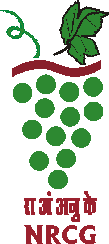Yes, NRL, NRCG, Pune is accredited to ISO/IEC 17025:2017 (Chemical testing- Pesticide Residues and mycotoxins) and ISO/IEC 17043:2010 (Proficiency Testing Provider- Pesticide Residues and mycotoxins.
Being a Referral/Reference laboratory of APEDA, Ministry of Commerce and FSSAI, Ministry of Health and Family Welfare, NRL, NRCG, Pune does not undertake any commercial testing or issue test certificate to customer for commercial purpose.
The NRL conducts analyses of agriculturally important pesticide residues, plant growth regulators, mycotoxins, and other organic contaminants in food matrices, primarily focusing on fruits and vegetables, and peanut and peanut products
The charges for various analytical services are listed on the ICAR-NRC for Grapes' website under the "Analytical Charges" section. For details, you may contact In-charge, SAIF, ICAR-NRCG, Pune
The NRL is recognized by the Food Safety and Standards Authority of India (FSSAI), Ministry of Health and Family Welfare as a Reference laboratory for pesticide residue and mycotoxin analysis. The lab is also recognized as a referral Laboratory for the control of pesticides and mycotoxin residues in agricultural commodities for export facilitation by APEDA, Ministry of Commerce. Also NRL possess accreditation as per ISO 17025:2017 and ISO 17043:2010 now-onwards.
The NRL is equipped with advanced technology and instruments such as GC-MS/MS, LC-MS/MS, LC-HRMS, GC-HRMS and HPLC for accurate and reliable analysis of organic contaminants in various agricultural commodities.
Yes, the NRL conducts analyses in compliance with international standards such as Codex, EU, and other global export requirements with respect to pesticide and mycotoxin residues.
Yes, the NRL provides detailed guidelines and support for proper sample collection (sampling) and handling to ensure accurate analysis of pesticide residues and aflatoxin residues in various food commodities. The request may directly be communicated to director.nrcg@icar.gov.in
The NRL periodically organizes training programs and workshops for stakeholders on analytical techniques and food safety practices pertaining to pesticide residues and mycotoxin analysis.
Yes, the NRL accept internship programs for students interested in gaining hands-on experience in analytical techniques and food safety practices. The detailed guideline on internship can be accessed from student’s corner at ICAR-NRCG website.
Yes, the NRL provides guidance and support for student research projects related to analytical chemistry, food safety, and post-harvest on mutual agreement basis as per ICAR guidelines. The scientist from NRL, NRCG has to be recognized as a guide or co-guide of the student by the specific university. The detailed guideline on internship can be accessed from student’s corner at ICAR-NRCG website.

